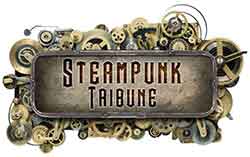This week, instead of continuing with the Victorian Glossary, I happend to see a small piece in “What Jane Austen Ate and Charles Dickens Knew”, and thought it might make for a nice bit contrasting the norms that gentlemen one hundred years ago tarried to maintain and current social norms. Though much of this not is applicable in SL, it does provide a bit of juxtaposition.
Basic Etiquette: Gentlemen
1) In riding horseback, or walking along the street, the lady always has the wall. (Editors note: as I understand this “rule”, its purpose if there is water along the street, the gentleman will be splashed with the grimy substance, keeping the bulk away from the lady).
2) Meeting a lady in the street or in the park whom you know only slightly, you may wait for her acknowledging bow then and only then may you tip your hat to her, which is done using the hand farthest away from her to raise the hat. You do not speak to her or any other lady unless she speaks to you first.
3) If you meet a lady who is a good friend and who signifies that she wish to talk to you, you turn and walk with her if you wish to converse. It is not “done” to make a lady stand talking in a street.
4) In going up a flight of stairs, you precede the lady (running, according to one authority); in going down, you follow).
4) In a carriage, a gentleman takes the seat facing backward. If he is alone in a carriage with a lady, he does not sit next to her, unless his is her husband, brother, father, or son. He alights from the carriage first so he may hand her down. He takes care not to step on her dress.
5) At a public exhibition or concert, if accompanied by a lady, he goes in first in order to find her a seat. If he enters such an exhibition alone and there are ladies or older gentlemen present, he removes his hat.
6) A gentleman is always introduced to a lady never the other way around. It is presumed to be an honor for the gentleman to meet her. Likewise (and it is the more general rule of which this is only a specific example), a social inferior is always introduced to a superior and only with the latters acquiescence. Elizabeth Bennet is horrified when the obtuse Mr. Collins insists on introducing himself to Mr. Darcy in Pride and Prejudice. She tries to persuade “him that Mr. Darcy would consider his addressing his addressing him without introduction to as an impertinent freedom, rather than a compliment to his aunt; that it was not in the least necessary that there should be any notice on either side, and that if there were, it must belong to Mr. Darcy, the superior in consequence, to begin the acquaintance.”
7) A gentleman never smokes in the presence of ladies. (More on this later!)
Next, the “rules” for ladies! But for now, the source is…
Poole, D, (1993). “What Jane Austen Ate and Charles Dickens Knew”, by Touchstone Publications, New York: New York.



